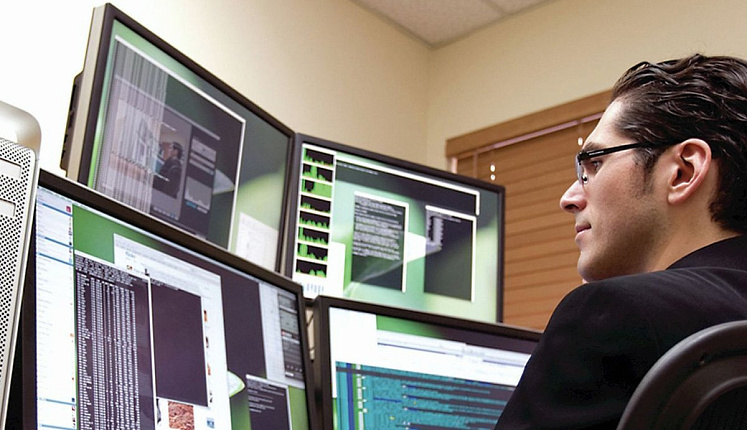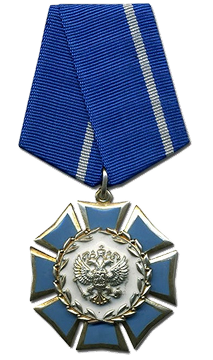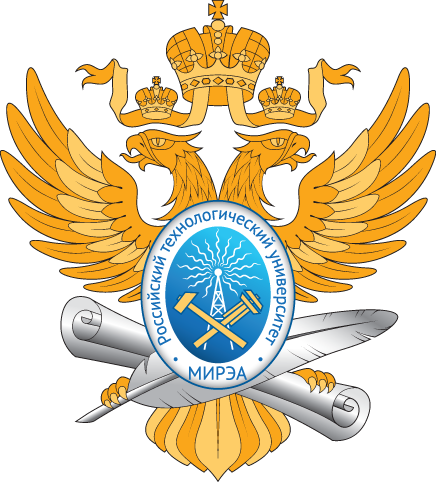01.03.02 Applied mathematics and information science
Students acquire knowledge and skills in mathematical modeling and programming enabling them, upon graduation, to work in the cutting-edge fields of science and engineering. The capacity to do research on a wide spectrum of objects, ranging from living nature to sophisticated land-based, underwater, aerial or space-based technological hardware systems, is a guarantee of employment. Fundamental mathematical training and the ability to work in various programming environments permit the students to continue their education in various master’s programs.
Level of education:
Bachelor's degree
Form of training:
Full-time (daytime)
Venue of training:
Moscow
Entrance exams:
— Mathematics (major)
— Russian language
— Information science and ICT
— Russian language
— Information science and ICT
Programs, specializations:
Mathematical modeling and computational mathematics

Mathematical modeling and computational mathematics are essential to multi-criteria data processing and management in the context of complex dynamic systems, whether biological, economic or technological. A digital economy as a whole rests on the creation of services which are impossible to implement without the use of rigorous mathematical process models or the techniques of computational mathematics.
A programmer in mathematical modeling and computational mathematics, who can apply smart information processing and optimization techniques and is able to work with various operating systems, will be among the most in-demand specialists on the labor market.
A programmer in mathematical modeling and computational mathematics, who can apply smart information processing and optimization techniques and is able to work with various operating systems, will be among the most in-demand specialists on the labor market.
Alumni can be employed as
- systems analyst by banks, industrial corporations, or large industrial, administrative or manufacturing government entities
- algorithm and software developer for complex information systems
- database and expert system designer
- developer of mathematical models for complex information systems
- developer of mathematical support for information processing and control shaping in complex engineering systems
- developer of mathematical software for multimedia database information processing
- researcher in applied or computational mathematics and theoretical information science
Program subjects
- Computer architecture
- Programming languages
- Intelligent systems
- Artificial intelligence
- Fundamentals of discrete mathematics
- Basic mathematical modeling
- Information systems analysis and design
- Optimization techniques
- Databases and expert systems
- Operating systems
- Automatic machines and algorithms
- Numerical techniques
- Random processes
- Game theory and operations research
- Functional analysis
- Equations of mathematical physics
- Finite-difference equation models with partial derivatives
Department of Higher Mathematics
System programming and computer technology

The program’s curriculum includes classical mathematical subjects as well as those relating to modern information technologies and programming.
The alumni’s field of professional activity has to do with designing, researching, making and operating large information systems to process heterogeneous data in the interests of government services and agencies as well as transport organizations, medical institutions, agricultural enterprises and various commercial companies.
The alumni’s field of professional activity has to do with designing, researching, making and operating large information systems to process heterogeneous data in the interests of government services and agencies as well as transport organizations, medical institutions, agricultural enterprises and various commercial companies.
Alumni can be employed as
- systems analyst by banks and manufacturing companies
- software engineer
- mathematical engineer
- algorithm and software developer for complex information systems
- database and expert system designer
- processor system developer
- software architect
- system administrator
Program subjects
- Fundamentals of algorithmics
- Databases
- Fundamentals of programming
- Computer architecture
- Programming languages and methods
- Numerical methods
- Software product building techniques
- Information systems analysis and design
- Operating systems
- Real-time operating systems
- Computer graphics
- Computer networks
- Radar systems
- Translator design
- Software development management
- Game theory and operations research
- Computer-aided design systems
Core Department No. 536 on Software for Radio Electronic Equipment Systems
- Educational Activity
-
Institutes
- Institute of Information Technologies
-
Institute of Artificial Intelligence
- About the Institute
- Institute Administration
- History of the Institute
-
Training programs
- Bachelor's Degree Programs
-
Master's Degree Programs
- 01.04.02 Applied mathematics and information science
- 09.04.01. Informatics and computer engineering
- 12.04.04 Biotechnical systems and technologies
- 15.04.04 Automation of technological processes and production
- 15.04.06 Mechatronics and robotics
- 27.04.03 System analysis and management
- 27.04.04 Engineering system control
- Infrastructure
- Alumni
- Contacts
- Institute for Cybersecurity and Digital Technologies
-
Institute for Advanced Technologies and Industrial Programming
- About the Institute
- Institute Administration
- History of the Institute
-
Training programs
-
Bachelor's Degree Programs
- 09.03.02 Information systems and technologies
- 11.03.04 Electronics and nanoelectronics
- 12.03.05 Laser technology and laser techniques
- 15.03.01 Mechanical engineering
- 22.03.01 Materials science and technology
- 27.03.01 Standardization and metrology
- 28.03.01 Nanotechnology and microsystems engineering
- 29.03.04 Decorative material working techniques
- 54.03.01 Graphic design
-
Master's Degree Programs
- 09.04.02. Information systems and technologies
- 11.04.04 Electronics and nanoelectronics
- 12.04.02 Optical engineering
- 15.04.01 Mechanical engineering
- 22.04.01 Materials science and technology
- 27.04.01 Standardization and metrology
- 29.04.04 Decorative material working techniques
- 54.04.01 Graphic design
-
Bachelor's Degree Programs
- Infrastructure
- Alumni
- Contacts
- Institute of Radio Electronics and Informatics
- Institute of Management Technologies
- Lomonosov Institute of Fine Chemical Technologies
- Institute of International Education
-
Mega-Laboratories
- Motion Capture Laboratory
- Immersive Technologies Laboratory
- Laboratory for the Development and Transfer of Microfluidic Technologies (DTMT)
- Cell Technologies Megalaboratory operating on the basis of the Department of Chemistry and Technology of Biologically Active Compounds, Medical and Organic Chemistry named after N.A. Preobrazhensky
- General Biotechnology Megalaboratory
- Industry 4.0: Digital Robotized Production center
- Laboratory of Intelligent Autonomous and Multi-Agent Robotic Systems
- Research and Educational Center for Biosynthesis, Isolation and Purification of Monoclonal Antibodies (Generium)
- Rare and Precious Metals Research and Technological Center operating on the basis of the Department of Chemistry and Technology of Rare Elements named after K.A. Bolshakov
- Laboratory of Analytic, Modeling, Design and Digital Prototyping Technologies
- Import Substitution of Information Technologies Educational and scientific testing complex
- Smart Production Systems Educational and Scientific Center
- Elastomers. Thermoplastics. Technologies Educational and Research Center operating on the basis of the Department of Chemistry and Technology of Elastomer Processing named after F.F. Koshelev
- Catalytic and Mass Exchange Processes center
- Center of Innovative Technologies in Microelectronics
- Center for Cybersports Robotics
- Mobile Robotics University Laboratory
- Radio electronic Technologies Megalaboratory
- Departmental Situation Center of the Ministry of Science and Higher Education of the Russian Federation for monitoring the sphere of education and science
- Scientific and Educational Center for Medical Radiology and Dosimetry
- Laboratory of Geographic Information Systems and Technologies
- Educational and Research Center for Space Monitoring ("CosMoCenter")
- Additive Polymer Technologies Center
- Cyber Threat Research Megalaboratory
- Digital Center of Rosatom State Corporation
- Laser Technologies Megalaboratory
- Mathematical Modeling and Artificial Intelligence Megalaboratory
- Megalaboratory of Digital and Additive Technologies in Mechanical Engineering
- Nanomaterials and Nanostructures Diagnostics Center
- Techno-coworking
- TESLA Educational and Research Center
- Bachelor's Degree Programs
- Master's Degree Programs
- Additional Education Programs
- Physical Education and Sports
© 2026 MIREA - Russian Technological University




